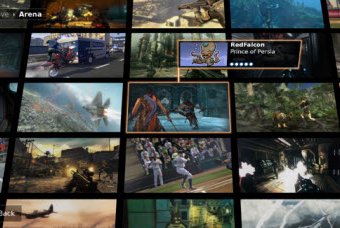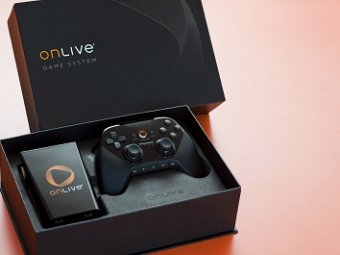Rivals beware: OnLive says it has a fundamental patent on cloud-based games
 Games-on-demand company OnLive said today it has received a fundamental patent covering the invention of cloud-based video games.
Games-on-demand company OnLive said today it has received a fundamental patent covering the invention of cloud-based video games.Steve Perlman, chief executive Palo Alto, Calif.-based OnLive, said in an interview the patent is one of hundreds that the company has filed, and its coverage of the technology involved is very deep. OnLive’s technology is potentially disruptive, since it allows game publishers to sell games to users over a broadband network rather than in stores; it also could disrupt console makers and manufacturers of high-end computers, since it can eliminate the need for either.
The patent covers a “breakthrough” technology where video games run on remote servers in data centers and users with a broadband-connected device — such as a TV, PC, Mac, or mobile device — can instantly play the highest-performance, new-release games with no discs, no downloads and no hardware upgrades.
U.S. patent No. 7,849,491 listed Perlman himself as the inventor when it was originally filed in December, 2002. That was shortly after he began work on the technology, which finally launched as an online gaming service in June. OnLive also anticipates receiving additional related patents from patent offices around the world. The patent was granted last week, showing just how far behind the patent office is in acknowledging inventions.
 Normally, users play high-end games with outstanding graphics on expensive PC or console hardware. They put a disc into a machine, which processes the game and then displays it. But OnLive processes the game in a server in a web-connected data center. The computed images are sent over a broadband connection and displays on the user’s machine, which does not have to have heavy-duty processing hardware. With the help of compression technology, the game experience seems like it is running on the user’s own machine when it may in fact be running on a server 1,000 miles away. When a user wants to upgrade to play better games, the server hardware is updated; but the user doesn’t have to buy a new machine. The patent describes how the user can connect via a wireless network, which was a rarity back in 2002.
Normally, users play high-end games with outstanding graphics on expensive PC or console hardware. They put a disc into a machine, which processes the game and then displays it. But OnLive processes the game in a server in a web-connected data center. The computed images are sent over a broadband connection and displays on the user’s machine, which does not have to have heavy-duty processing hardware. With the help of compression technology, the game experience seems like it is running on the user’s own machine when it may in fact be running on a server 1,000 miles away. When a user wants to upgrade to play better games, the server hardware is updated; but the user doesn’t have to buy a new machine. The patent describes how the user can connect via a wireless network, which was a rarity back in 2002.Perlman (pictured right) said there was a lot of disbelief when he first began talking publicly about the technology with VentureBeat and others in March, 2009. But the patent confirms that his company has done a lot of important work and is the leader in the space, he said.
Rivals include Gaikai and Otoy. Perlman declined to comment on whether his company would sue its rivals. But he said that he has a history of trying to work out agreements and has never sued anyone for patent infringement, even though he personally has more than 100 patents. The patents have proven important to investors over the years as OnLive raised money. Investors include Warner Bros., Autodesk, Maverick Capital, AT&T, British Telecommunications, and the Belgacom Group.
“It is a landmark patent,” said Richard Doherty, analyst at the market analyst firm Envisioneering Group. “Perlman’s patent is based on real-world, not speculation as so many are. And because “gaming” is both broad and popular – it will likely see many rich media social gaming companies and services wanting to license it to find any differentiation.”
 OnLive has more than 200 employees now and has raised a considerable amount of money at a valuation of $1.1 billion (as recently as this summer). OnLive added new platforms such as big-screen TVs (via an adapter called a MicroConsole, pictured right) and iPads during the past month. An Android version is in beta testing. Next year, OnLive plans to start streaming movies via digital distribution on the same network that it uses to distribute games.
OnLive has more than 200 employees now and has raised a considerable amount of money at a valuation of $1.1 billion (as recently as this summer). OnLive added new platforms such as big-screen TVs (via an adapter called a MicroConsole, pictured right) and iPads during the past month. An Android version is in beta testing. Next year, OnLive plans to start streaming movies via digital distribution on the same network that it uses to distribute games.“When you first wrote about us, people were saying how it would never work,” Perlman said. “You can never time when a patent will arrive. But it’s gratifying to get the recognition. In my opinion, it is a very fundamental patent that covers an important part of the system.”
The OnLive Game Service was released to the public in June of 2010 on PC and Mac, and on the TV and iPad in December of 2010. An Android version is currently in beta.